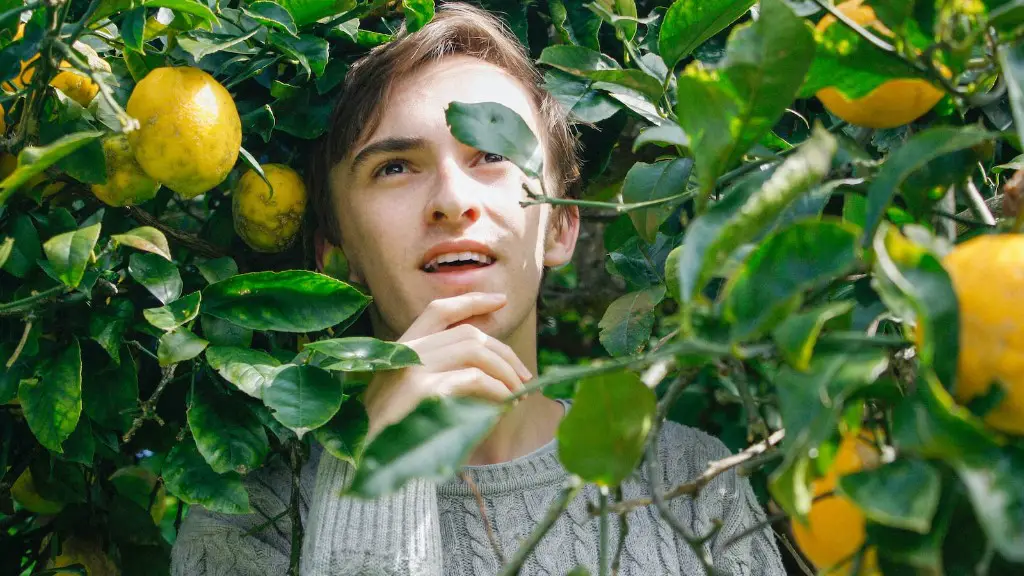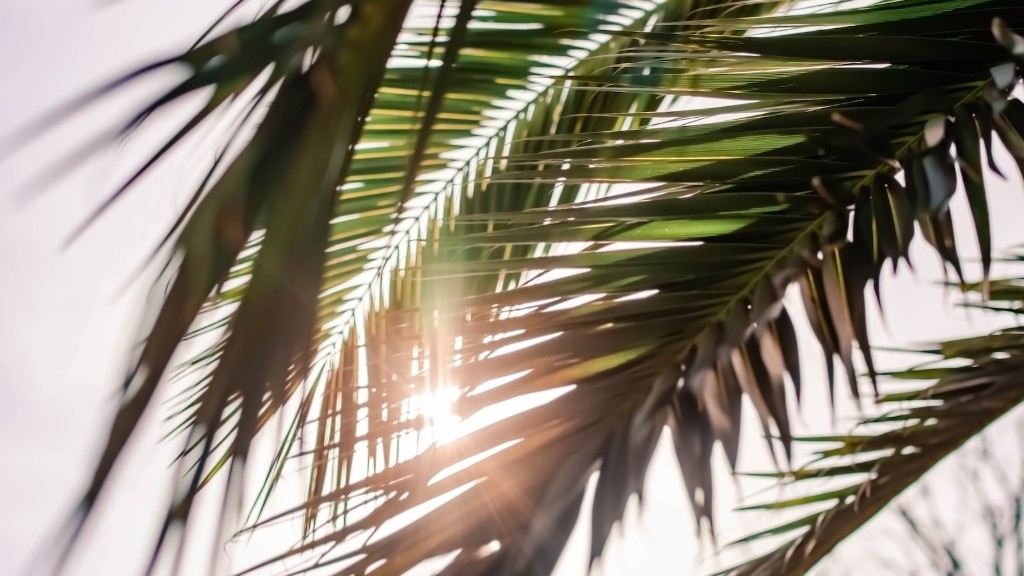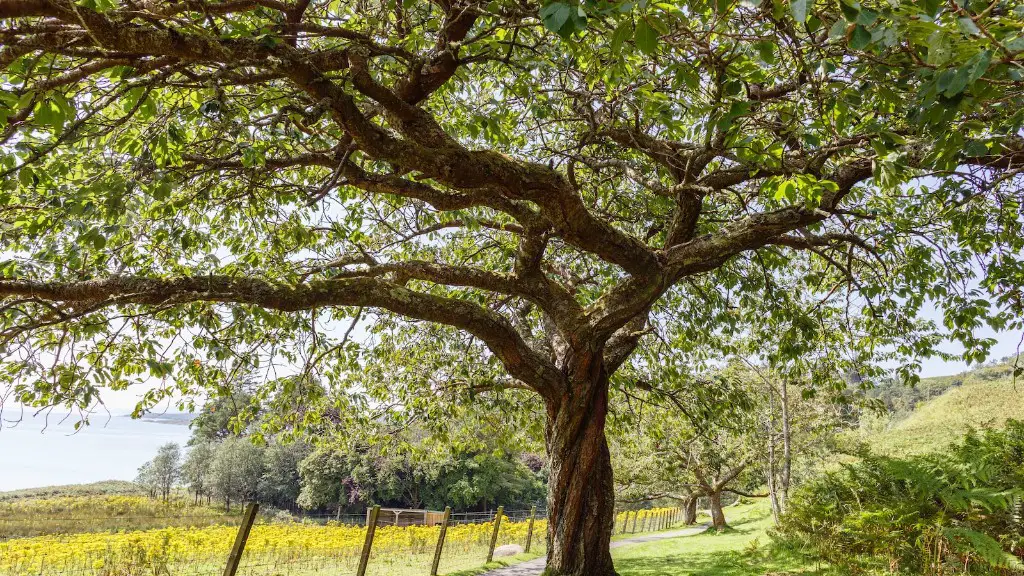When it comes to propagating citrus trees from seed, Meyer lemons are particularly popular due to their sweet taste. But after planting the seed, the question remains: when will my Meyer lemon tree produce fruit? While no one can predict with absolute certainty when a particular Meyer lemon tree will start producing fruit, there are a few factors you can consider to determine an approximate timeline.
Firstly, the type of Meyer lemon tree you have will affect its fruit-bearing timeline. Many Meyer lemons trees available commercially are dwarfs that provide smaller fruit, but they reach maturity earlier than standard-size trees. Dwarf Meyer lemon trees usually begin to produce fruit within two to three years, while standard-size trees may not reach peak production until at least five years after planting.
In addition, the climate in which your Meyer lemon tree is growing will have an impact on its fruiting timeline. Trees grown in cooler areas may take a few more years to produce fruit than those grown in warmer areas. The shorter, cooler days of winter also affect fruit production, as the trees require more sunlight to begin bearing fruits.
Finally, proper care is essential for your Meyer lemon tree to produce fruit as soon as possible. Regular fertilization, pruning, and pest control will help ensure your tree is healthy, and will give it the best chance of producing fruit earlier rather than later. Meyer lemons prefer soils with a pH level of 6-7, so you should also consider testing the soil and making any adjustments where necessary.
Growing Climate
When selecting a suitable location to plant your Meyer lemon tree, it is important to consider the climate of the area. In general, Meyer lemons prefer areas with a mild climate that has plenty of sunshine during the summer and protection from frost in the winter. If your area is prone to periods of extreme cold, then you should consider purchasing a Meyer lemon cultivar that is cold hardy and better suited to your climate.
Furthermore, Meyer lemons generally require between 250-300 days of warm weather throughout the year to produce abundant fruit. If you are living in an area with shorter growing seasons, you will most likely be able to produce some fruit on your Meyer lemon tree, but the yield will likely be lower than in a longer growing season.
Finally, it is also important to note that Meyer lemons do not require intense levels of heat to produce fruit, and growing them in areas with temperatures above 30°C (86°F) on a regular basis may cause them to produce fewer flowers and fruits.
Fruiting Requirements
In order for a Meyer lemon tree to produce fruit, it must reach a certain size. Standard-size Meyer lemon trees are usually large enough to bear fruit once they reach 2-3m in height, while dwarf trees may be ready to bear fruit in their first year of growth.
In addition, Meyer lemon trees require at least 6-7 hours of direct sunlight per day in order to develop strong, healthy foliage and flowers. If your tree is planted in a shady area, it may produce fewer fruits than it otherwise would in an area with plenty of sunlight for photosynthesis.
Meyer lemons also require humidity to produce their sweet fruit, with ideal humidity levels ranging from 40-50%. Additionally, some periodic rainfall or occasional watering is necessary for the tree to reach optimal fruiting. Without these environmental conditions, your Meyer lemon tree may struggle to reach its full potential.
Pollination Requirements
Pollination is also essential for Meyer lemon trees to produce fruit. While some citrus trees will self-pollinate, Meyer lemons require cross-pollination by bees or wind to develop their sweet fruits. Without pollination, Meyer lemon trees will not produce any fruit at all.
In addition, bees can be particularly fickle when it comes to pollinating citrus trees. Sufficient nectar must be available for them to visit your tree regularly, otherwise they won’t stay around long enough to pollinate it. Making sure that your Meyer lemon tree is attractive to bees is essential for optimal fruit production.
Finally, it is essential to ensure that other citrus plants are available in your garden or nearby area. This will help increase the likelihood of your Meyer lemon tree being properly pollinated, as bees will be able to move from tree to tree presenting a greater chance of cross-pollination.
Fruit Yield
When attempting to determine when your Meyer lemon tree will bear fruit, it is important to remember that there are a number of factors that can affect the amount of fruit the tree will produce. Trees grown in areas with longer growing seasons, adequate sunlight, and sufficient pollination will usually produce a higher yield than those in areas with fewer ideal conditions.
In addition to environmental factors, fertilization and pruning can also affect the fruit yield of your Meyer lemon tree. Fertilizers provide essential nutrients for the tree, and regular applications of fertilizer will ensure optimal growth and higher fruit production. On the other hand, pruning your tree in early spring will help ensure proper air circulation within the canopy and reduce the risk of disease, both of which can help improve the fruit yields.
Furthermore, it may take a few years for the tree to reach bearing maturity. New trees may yield light, partial crops even after they reach bearing maturity, while older and healthier trees can produce larger yields, with a single tree sometimes producing up to 500 fruits per season.
Harvesting Considerations
Finally, it is also important to consider when to harvest your Meyer lemon fruits. Meyer lemons are usually ready to pick when they are still green, but they will continue to ripen on the tree and will usually turn yellow within a few weeks. However, harvesting the fruit while they are still green will help encourage the tree to produce more fruit during the following season.
It is also important to note that Meyer lemons tend to be more susceptible to sunburn than other types of citrus, so it is essential to ensure that the fruits have adequate protection from the direct sunlight. If you notice any signs of sunburn, it is best to pick the affected fruit before the rest of the tree is affected.
Finally, it is essential to ensure that you harvest all of your Meyer lemons before the winter season begins. If you leave any of the fruits on the tree over the winter, they are likely to suffer from the cold temperatures, and may end up shrivelling or falling off the tree.


